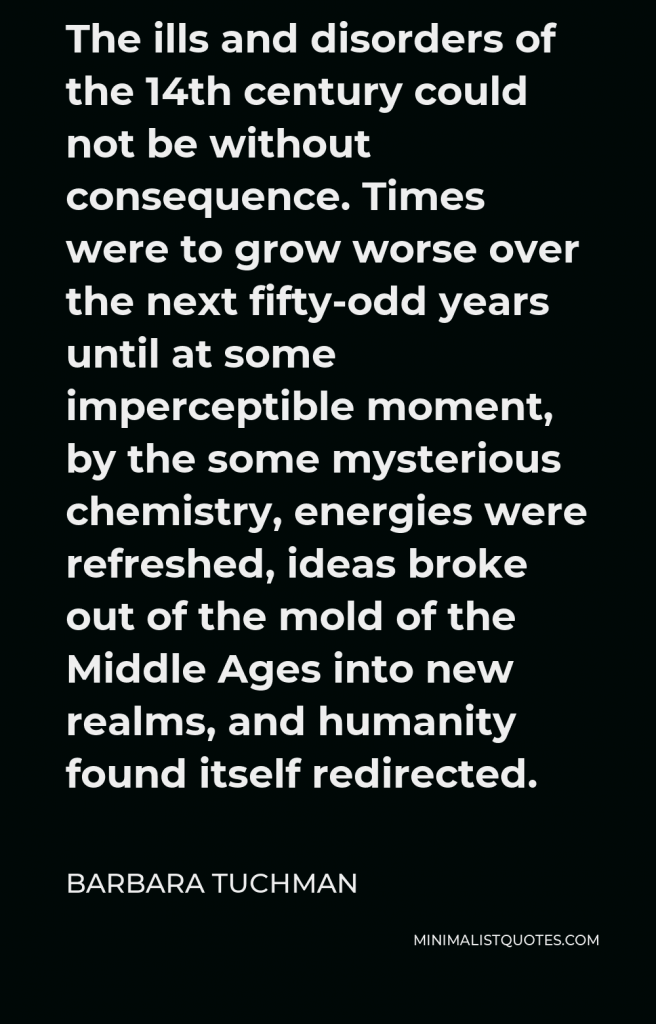in the midst of war and crisis nothing is as clear or as certain as it appears in hindsight
BARBARA TUCHMANChristianity in its ideas was never the art of the possible.
More Barbara Tuchman Quotes
-







-







The conduct of war was so much more interesting than its prevention.
BARBARA TUCHMAN -







In the search for meaning we must not forget that the gods (or God, for that matter) are a concept of the human mind; they are the creatures of man, not vice versa. They are needed and invented to give meaning and purpose to the struggle that is life on Earth.
BARBARA TUCHMAN -






Human beings of any age need to approve of themselves; the bad times in history come when they cannot.
BARBARA TUCHMAN -







satire is a wrapping of exaggeration around a core of reality.
BARBARA TUCHMAN -





![Barbara Tuchman Quote - The nastiness of women [in the 14th century] was generally perceived at the close of life when a man began to worry about hell, and his sexual desire in any case fading.](https://minimalistquotes.com/wp-content/uploads/2022/10/the-nastiness-of-women-in-the-14th-century-was-gen-683x1024.jpg)

The nastiness of women [in the 14th century] was generally perceived at the close of life when a man began to worry about hell, and his sexual desire in any case fading.
BARBARA TUCHMAN -







Governments do not like to face radical remedies; it is easier to let politics predominate.
BARBARA TUCHMAN -







The power to command frequently causes failure to think.
BARBARA TUCHMAN -







If power corrupts, weakness in the seat of power, with its constant necessity of deals and bribes and compromising arrangements,corrupts even more.
BARBARA TUCHMAN -







The ills and disorders of the 14th century could not be without consequence. Times were to grow worse over the next fifty-odd years until at some imperceptible moment, by the some mysterious chemistry, energies were refreshed, ideas broke out of the mold of the Middle Ages into new realms, and humanity found itself redirected.
BARBARA TUCHMAN -







The whole vast challenge of a continent waiting to be exploited, combined to produce a prevailing materialism and an American drive bent as much, if not more, on money, property, and power than was true of the Old World from which we had fled.
BARBARA TUCHMAN -







Rome had Caesar, a man of remarkable governing talents, although it must be said that a ruler who arouses opponents to resort to assassination is probably not as smart as he ought to be.
BARBARA TUCHMAN -







I have always been in a condition in which I cannot not write.
BARBARA TUCHMAN -







Reasonable orders are easy enough to obey; it is capricious, bureaucratic or plain idiotic demands that form the habit of discipline.
BARBARA TUCHMAN -







The appetite for power is old and irrepressible in humankind, and in its action almost always destructive.
BARBARA TUCHMAN -







That conflict between the reach for the divine and the lure of earthly things was to be the central problem of the Middle Ages.
BARBARA TUCHMAN







